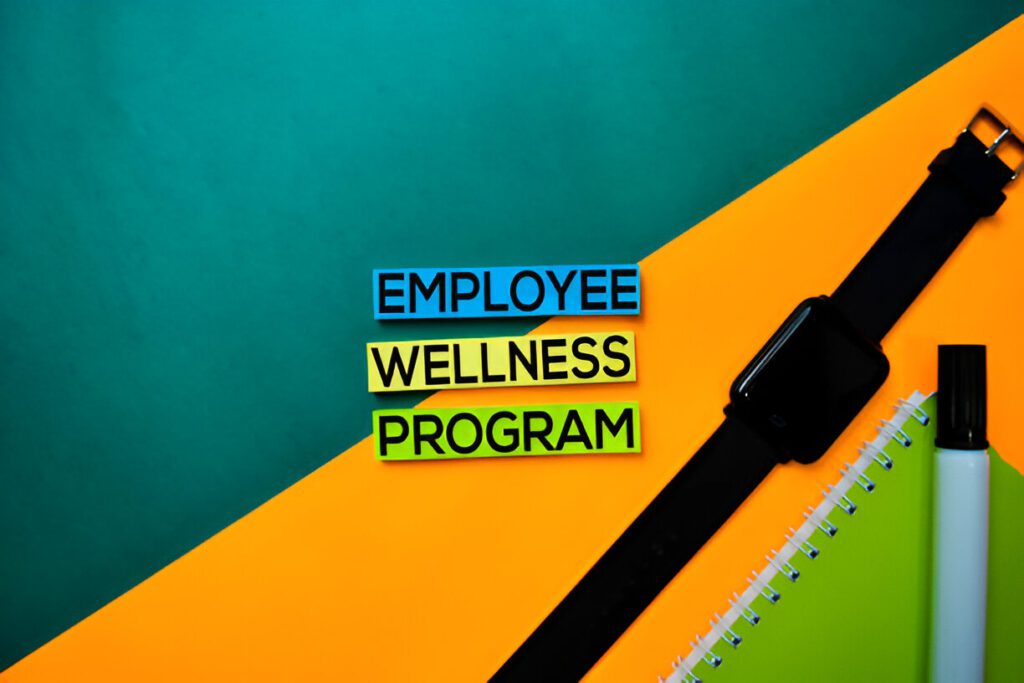Did You Know 40% of Burnout Cases Are Due to Neglected Self-Care?
Mind Keeps
- February 3, 2025
- No Comments
Table of Contents
ToggleIntroduction
Burnout is no longer a rare phenomenon—it’s an epidemic affecting millions across the globe. A recent survey by Mental Health UK revealed that nearly one-third of young employees aged 18 to 24 took time off work due to stress in 2024, underscoring the alarming rise in burnout among younger workers. This statistic paints a vivid picture of the mental health crisis sweeping through workplaces and homes alike.
At its core, burnout manifests as a triad of symptoms: emotional exhaustion, where energy is depleted; cynicism, marked by detachment and negativity; and reduced efficacy, a sense of incompetence or lack of achievement. These characteristics, when left unchecked, can derail both personal and professional lives.
As highlighted by recent discussions, a significant portion of burnout cases stems from one crucial factor: the neglect of self-care. Self-care, often dismissed as indulgent or unnecessary, is a cornerstone of emotional resilience. Without it, individuals are left vulnerable to the relentless pressures of modern life.
At MindKeeps, we understand the profound impact self-care can have on mental well-being. Our virtual mental wellness program is designed to help individuals rediscover balance, offering a free consultation to guide you on the path to emotional resilience. Prioritize your well-being today and take the first step toward preventing burnout by exploring our program.

Understanding the Link Between Self-Care and Burnout
Stress, particularly when chronic, can wreak havoc on both the body and mind. Its physiological effects are profound, often impacting the nervous system, immune system, and overall physical health. Prolonged stress keeps the body in a heightened state of alertness, leading to elevated cortisol levels that disrupt normal bodily functions. This can result in weakened immunity, increased inflammation, and even cardiovascular issues. As highlighted in a study published in Public Health, individuals juggling caregiving responsibilities for both children and aging parents—commonly referred to as “sandwich carers”—experience significant physical strain, further illustrating how unrelenting stress takes a toll on the body.
On a psychological level, the effects of chronic stress are equally alarming. Stress can lead to anxiety, depression, and cognitive decline, making even simple daily tasks feel insurmountable. Left unchecked, these mental health challenges can spiral into a state of burnout, marked by emotional exhaustion, detachment, and a diminished sense of accomplishment. Quoting from the same study, it’s evident that the mental burden of stress can become overwhelming without effective interventions.
Self-care serves as a powerful antidote to these stressors, offering a pathway to recovery and resilience. By incorporating stress reduction techniques such as meditation, deep breathing, and mindfulness, individuals can calm their overactive nervous systems and restore balance. Practices like yoga further enhance this effect by combining physical movement with mental focus, promoting both relaxation and vitality.
Physical activity, too, is a cornerstone of self-care. Regular exercise not only boosts endorphin levels but also reduces cortisol, helping to elevate mood and mitigate stress. Similarly, adequate nutrition and sleep are essential. A balanced diet fuels the body and brain, while restorative sleep allows the mind to recharge, enhancing emotional well-being and cognitive performance.
Finally, the importance of social connection cannot be overstated. A strong support network acts as a buffer against stress, providing emotional validation and practical assistance during challenging times.
At MindKeeps, we understand the importance of prioritizing self-care to combat the effects of chronic stress. Our virtual mental wellness program offers personalized strategies to help you build emotional resilience and reclaim balance. Book your free consultation today and take the first step toward a healthier, more vibrant you.

40% and Beyond: The Prevalence of Self-Care Neglect
Burnout is a growing crisis across various professions, with neglect of self-care at its core. According to the 2024 NAMI Workplace Mental Health Poll, 52% of employees reported feeling burned out in the past year due to job-related stress. Manager-level employees experienced even higher rates at 54%, compared to 40% among entry-level workers. These statistics highlight how burnout transcends hierarchical boundaries, affecting both seasoned professionals and newcomers alike.
The neglect of self-care is a significant contributor to these figures. Research consistently shows that individuals who deprioritize their well-being are more vulnerable to emotional exhaustion, cynicism, and reduced performance. As mentioned in the NAMI report, the rising awareness of mental health issues in the workplace has sparked discussions, yet actionable change remains elusive in many organizations.
Root Causes of Self-Care Neglect
- Time Constraints and Demanding Schedules
In today’s fast-paced world, many individuals struggle to balance work, family, and personal obligations. With packed calendars and constant connectivity, self-care often takes a back seat. This relentless pace leaves little room for activities that promote mental and physical well-being, further compounding stress. - Perfectionism and Unrealistic Expectations
Perfectionism can be another roadblock to self-care. The pressure to meet high standards, whether self-imposed or external, often leads to overwork and self-neglect. Unrealistic expectations create a cycle of stress and burnout, making it even harder to prioritize personal needs. - Societal Stigma Around Self-Care
There remains a persistent misconception that self-care is selfish or unproductive. Many people feel guilty for taking time for themselves, fearing judgment from peers or colleagues. This stigma perpetuates the neglect of self-care, despite its proven benefits in enhancing productivity and emotional resilience.
Taking the Next Step
At MindKeeps, we believe in empowering individuals to break free from the cycle of burnout by prioritizing self-care. Our virtual mental wellness program is designed to help you identify stressors, develop sustainable habits, and build emotional resilience. Book your free consultation today and discover how we can guide you toward a healthier, more balanced life.

Building Emotional Resilience Through Self-Care Practices
In a world filled with stressors, emotional resilience—the ability to adapt, tolerate stress, and recover from adversity—is a critical skill. Emotional resilience empowers individuals to maintain balance during challenging times, fostering mental well-being and long-term productivity. It is not an innate trait but a skill that can be cultivated through intentional self-care practices.
As highlighted in research published by Taylor & Francis Online, self-care is directly linked to reduced burnout and secondary traumatic stress while increasing compassion satisfaction. These findings underscore the role of self-care in enhancing emotional resilience.
Practical Self-Care Strategies for Emotional Resilience
1. Mindfulness Meditation Techniques
Mindfulness meditation is a powerful tool for grounding oneself in the present moment. Apps like Headspace and Calm offer guided meditations tailored to beginners and experienced practitioners alike. Even five minutes of deep breathing or focused meditation can significantly reduce stress and enhance mental clarity.
2. Stress-Reducing Activities
Engaging in activities like journaling, spending time in nature, or listening to soothing music can help alleviate stress. Journaling, for instance, allows individuals to process emotions and gain insights into their thoughts. Similarly, a walk in a park or forest can rejuvenate the mind and body, leveraging the restorative power of nature.
3. Prioritizing Physical Health
Physical health is the foundation of emotional resilience. Regular exercise releases endorphins, which naturally boost mood and reduce stress. A balanced diet rich in whole foods fuels the body and brain, while sufficient sleep—ideally 7–9 hours per night—ensures optimal cognitive and emotional functioning.
4. Setting Healthy Boundaries
Boundaries are essential for maintaining balance in personal and professional life. Learning to say “no” to excessive demands protects your time and energy, allowing you to focus on priorities without feeling overwhelmed. This practice fosters self-respect and reduces the risk of burnout.
5. Cultivating Social Connections
Strong social support networks act as a buffer against stress. Sharing experiences with trusted friends, family, or support groups fosters a sense of belonging and emotional security. According to experts, meaningful relationships are a cornerstone of resilience, helping individuals navigate life’s challenges more effectively.
Take the First Step Toward Resilience
At MindKeeps, we believe emotional resilience begins with small, intentional changes. Our virtual mental wellness program offers personalized strategies to help you prioritize self-care and build resilience. Schedule your free consultation today to explore how we can guide you on your journey to emotional well-being.

Creating a Sustainable Self-Care Routine
Building a sustainable self-care routine is essential for maintaining emotional and physical well-being. However, many individuals struggle to make self-care a consistent part of their lives. By adopting practical strategies, you can create a routine that supports long-term health and resilience.
Tips for Incorporating Self-Care Into Daily Life
1. Start Small and Gradually Increase
The key to sustainable self-care is beginning with manageable steps. For instance, dedicate just five minutes a day to meditation or a short walk. Once these small habits feel natural, gradually expand them. As highlighted in a study published by OJIN, even structured, small-scale self-care practices can significantly alleviate burnout symptoms, particularly for high-stress professions like nursing.
2. Schedule Self-Care Time
Treat self-care as a priority by blocking out dedicated time in your calendar. Whether it’s a morning routine, a mid-day break, or an evening wind-down, scheduling ensures that self-care becomes a non-negotiable part of your day.
3. Find What Works Best for You
Self-care is not one-size-fits-all. Experiment with various activities—such as journaling, yoga, or spending time with loved ones—to discover what brings you the most joy and relaxation. Tailoring your routine to your preferences increases the likelihood of sticking with it.
4. Be Patient and Persistent
Building sustainable habits takes time. Be kind to yourself during the process and remain consistent, even if progress feels slow. Over time, self-care will naturally integrate into your daily life.
Start Your Journey to Lasting Self-Care
At MindKeeps, we understand that creating a self-care routine can feel overwhelming. That’s why we offer a personalized virtual mental wellness program designed to help you build sustainable habits tailored to your unique needs. Schedule your free consultation today and take the first step toward a healthier, more resilient you.

Conclusion: Prioritize Self-Care for a Healthier Future
Self-care is not a luxury—it’s a necessity for preventing burnout and fostering long-term emotional and physical well-being. By prioritizing self-care, you empower yourself to build resilience, manage stress effectively, and navigate life’s challenges with greater ease. As discussed, neglecting self-care can lead to severe consequences, including burnout, mental health struggles, and diminished quality of life. It’s time to shift the narrative and make self-care a non-negotiable part of your daily routine.
According to resources provided by the National Alliance on Mental Illness (NAMI), taking proactive steps to prioritize self-care can significantly reduce burnout risk, particularly in demanding workplace environments. Their comprehensive guides on workplace mental health underscore the importance of integrating self-care into your lifestyle to safeguard your mental and emotional health.
At MindKeeps, we are committed to helping you take control of your well-being. Our virtual mental wellness program is designed to provide you with the tools, resources, and support needed to create a sustainable self-care routine. Whether you’re just starting your journey or looking for a structured plan, we’re here to guide you every step of the way.
Take the first step toward a healthier, more balanced life. Schedule your free consultation with MindKeeps today and start building a self-care routine that works for you.Real-world success stories demonstrate the transformative impact of workplace wellness programs. These examples highlight how strategic investments in employee well-being lead to enhanced engagement and organizational performance.
All Categories
This is your space for insight, inspiration, and growth. This blog is dedicated to empowering you with valuable tools and strategiesto nurture your mental well-being. Whether you’re exploring new ways to manage stress, seeking motivation to achieve your goals, or simply looking for a sense of community, you’re in the right place. Here, you’ll find expert advice, pratical tips,a snd thought-provoking articles desined to support your journey toward balance, resilience, and a healthier mindset.
Your mental wellness journey starts here—let’s grow togethe!
- All Posts
- Community Mental Health
- Family and Mental Health
- Mental Health and Personal Growth
- Mental Health Education and Awareness
- Mindfulness and Holistic Wellness
- Self-Care and Emotional Resilience
- Stress Management and Productivity
- Support for Mental Health Conditions
- Virtual Services for Mental Health
- Workplace and Mental Wellness
Benefit from our mental health consulting services and mental wellness membership program.
















